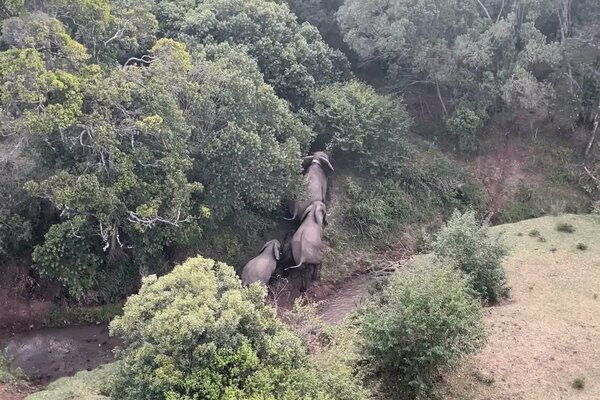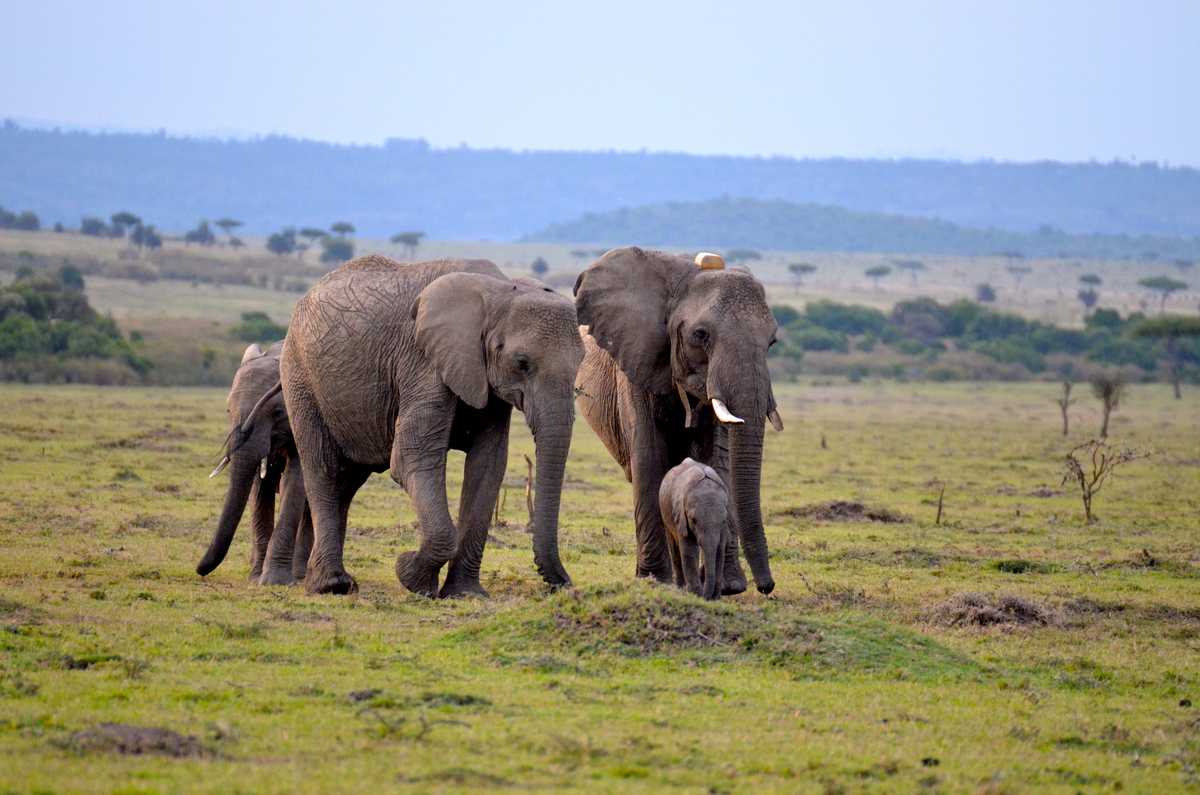
Ivy is a female elephant in the Greater Masai Mara ecosystem. She has been wearing a collar for over a decade. This includes GPS/GSM tracking devices, to allow Mara Elephant Project to track and monitor the movements and behaviour of her herd and to assist with conservation actions.
Seeing where the elephants go and how long they spend there provides a better understanding of how changing land use patterns are impacting the species.
MEP’s EarthRanger conservation software provides real-time updates from a range of sources including elephant collars, rangers, vehicles and cameras. Teams can predict locations where elephants may come into conflict with the community and this allows them to respond more rapidly, in many cases defusing a situation before it escalates.
Why is Ivy of special interest? Ivy is known to be a prolific, and very effective crop raider. The team at MEP call her a 'crop-o-holic'.
Crops provide a nutritious food source, but crop-raiding elephants can very quickly destroy community livelihoods, erode human tolerance towards wildlife and spark retaliatory behaviour.
Image: Ivy's family, MEP
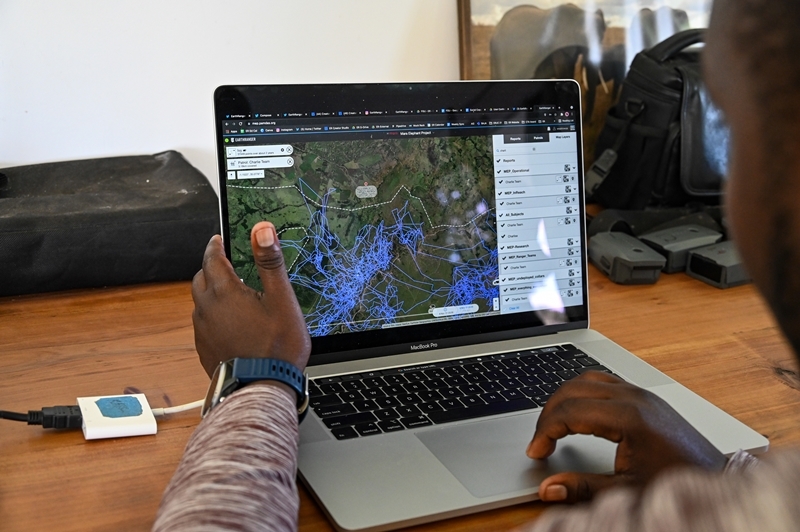
Back in 2016, Bobo, a big bull elephant, and notorious crop raider in the same area as Ivy's herd, was treated by vet teams for a spear injury to his left rump. He was speared again within a fortnight, after raiding further crops and this time Bobo was not so fortunate. The second spear injury proved fatal.
More elephants are currently being lost in the Greater Mara to human-wildlife conflict incidents, than they are to poaching.
Image: Earth Ranger in action , MEP
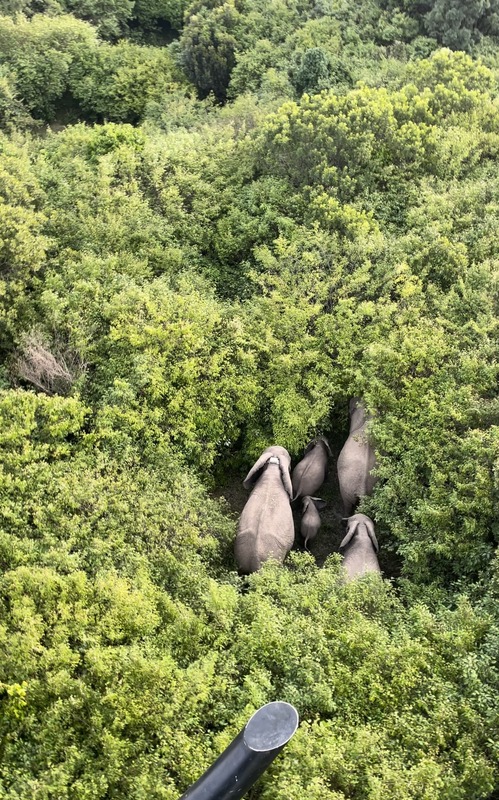
Ivy is an excellent mother - she's raised a number of calfs, most recently in 2017 and 2020. She is very easy to identify these days as she has a missing tusk (this fell out naturally).
Just last month, in June, Ivy and her herd were raiding sorghum and maize farms. The MEP ranger team rapidly responded to move the elephants out and protect the community’s crops.
Rangers deployed firecrackers initally - these don't touch or harm the elephants, they are just used to deter them. However, Ivy's herd were not put off, and persisted.
The MEP helicopter was called in.
CEO Marc Goss successfully moved the elephants out and rangers remained on the ground to ensure the community was also safe.
Image: Ivy being deterred from crop-raiding in June by the helicopter, MEP
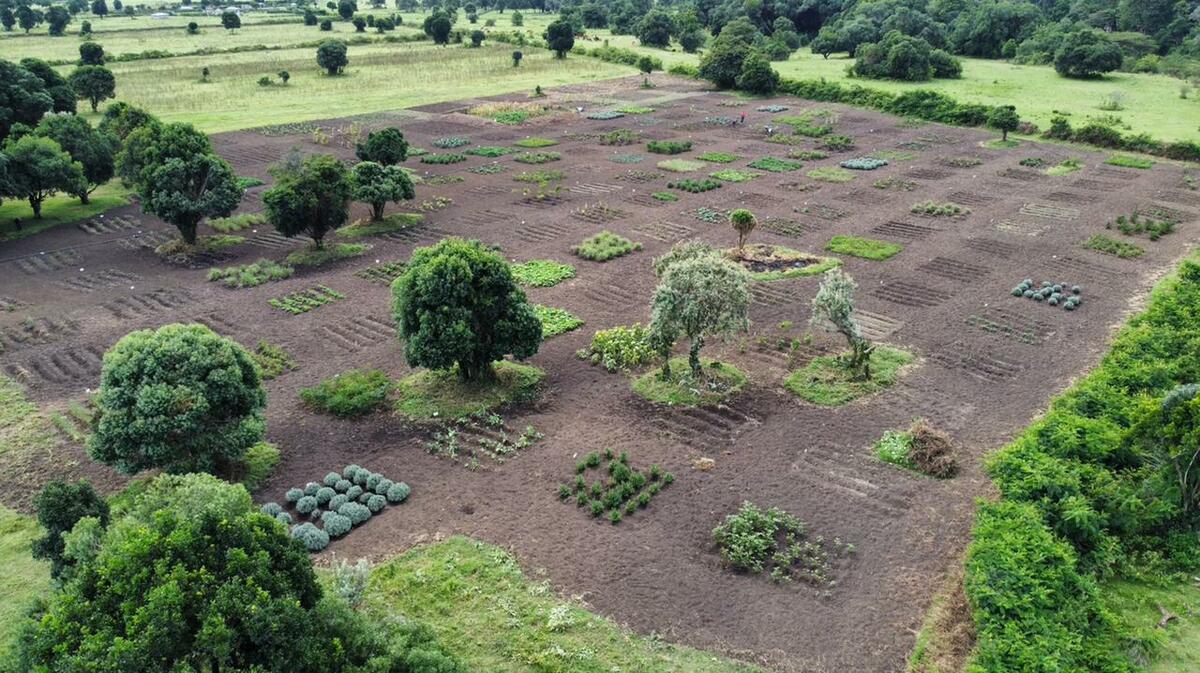
A study published in the Journal of Animal Ecology in November 2021 (led by an international team from Colorado State University, Mara Elephant Project, Grumeti Fund, Tanzania Wildlife Research Institute, Kenya Wildlife Service and Save the Elephants) documented that 9% of elephants in the Mara-Serengeti ecosystem, including Ivy, are habitual crop raiders (and accounted for 32% of crop-raiding) with two thirds of the elephant population sporadic or seasonal crop raiders.
They also found that crop raiding was 'remarkably consistent' with raids at night and with the herd moving quickly.
In 2022 we partnered with the Mara Elephant Project to support solutions to promote human-elephant co-existence in this area.
We've specifically helped to fund a 5 acre farm site in the Mara which is trialling different crops, including herbs, spices and medicinal crops, less attractive to elephants but still profitable for farmers.
Tea tree has proved very successful to date - the team have also been harvesting thyme and okra, chilli, cabbage and onion. Interestingly the maize plot was completely cleared by elephants while the maize plot interplanted with sunflowers was not predated at all (although elephants did pass through).
Image: MEP Farm, courtesy of MEP

